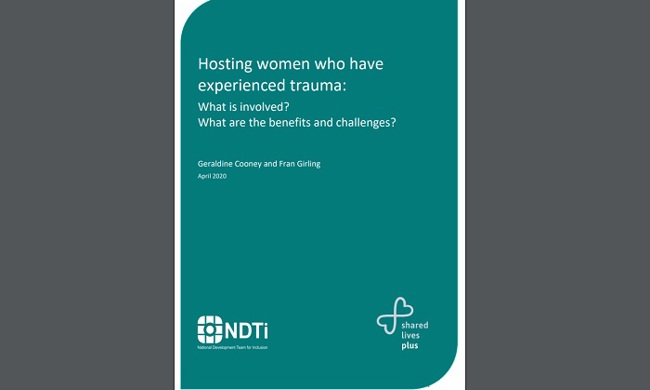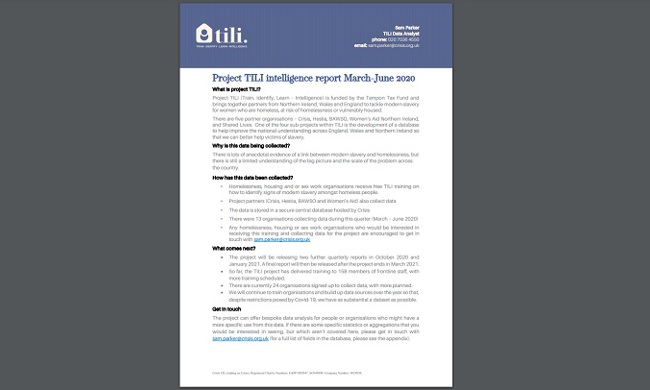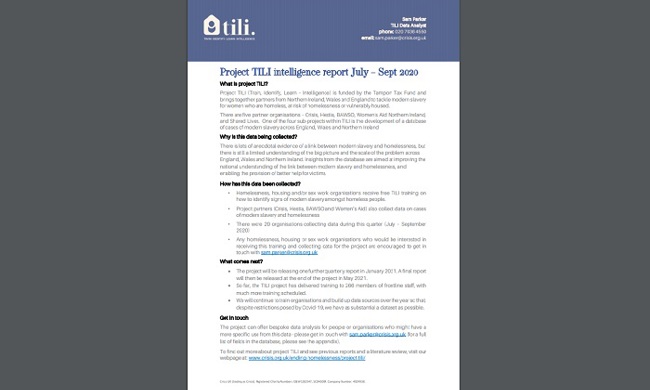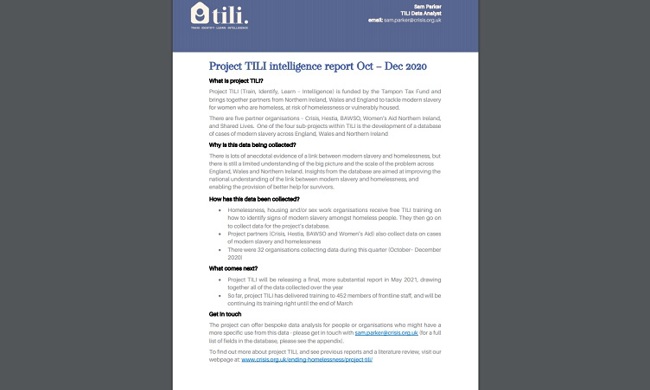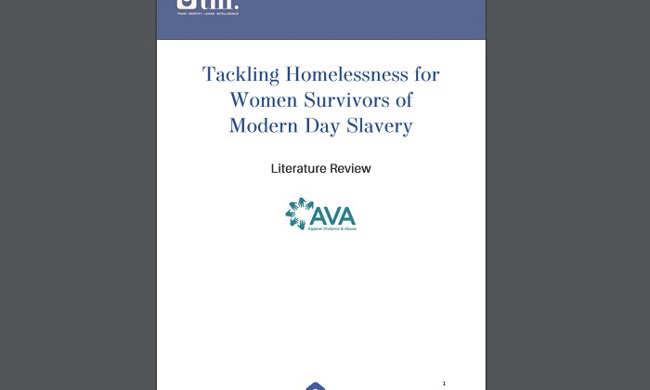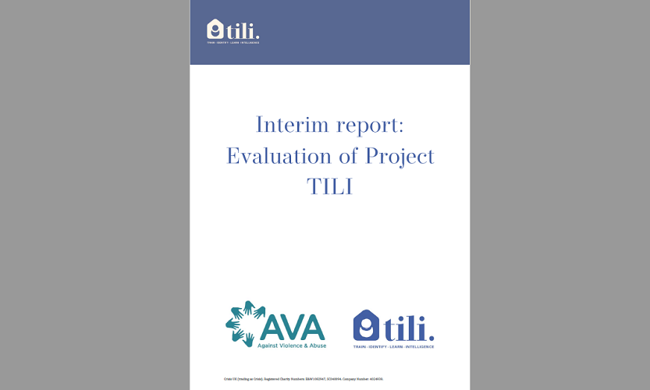Project TILI: Modern Slavery and Homelessness (2020)
09.12.2020
The Tackling Homelessness for Women Survivors of Modern Slavery Project (Project TILI – Train, Identify, Learn, Intelligence) is a two-year project funded by the Tampon Tax Fund. The project is delivered by a partnership of Crisis (UK), Hestia (England), BAWSO (Wales), Women's Aid (Northern Ireland) and Shared Lives Plus (UK).
Project TILI aims to gather evidence to understand the links between homelessness and modern slavery to develop a model for the identification, support, recovery, accommodation and integration of women who have escaped modern slavery and who are homeless or at risk of homelessness.
Intelligence Reports:
As there is limited data available on the links between modern slavery and homelessness, Crisis alongside its TILI partners have developed a database to improve the understanding of both services and decision-makers.
Project TILI provides training to frontline service staff in homelessness, housing and sex work organisations across England, Wales and Northern Ireland on this subject, and the organisations who receive this training collect data for the database. Intelligence reports then are produced from this data to enhance the national understanding of the links between homelessness and modern slavery.
Interim Evaluation:
AVA (Against Violence and Abuse) was commissioned to externally evaluate Project TILI to capture impact and learning across its four sub-projects.
This interim report presents the findings of the external evaluation at an interim stage of the project delivery, including data from January 2020 until November 2020. It highlights the impact of Project TILI on organisations and professionals involved with across the sub-projects, and the victims of modern slavery that have benefited from project activity. The report also identifies the specific elements of Project TILI that have been particularly effective in terms of achieving the intended outcomes of the project, as well as presenting the key barriers and challenges to the delivery of the project.
The following elements of Project TILI have been shown to be particular enablers of success:
- Organic, flexible support models: Frontline support for survivors of modern slavery with experience of violence built on a trauma-informed foundation with a holistic person-centred model.
- Experienced staff working within broader services: Situating the frontline service within experienced organisations that can offer broader expertise, networks of professionals, links to external agencies and services for clients to get involved in.
- Partnership working across various sectors (including homelessness, women’s sector, modern slavery): Sharing learning, sharing training opportunities and insights, and creating a model for those who otherwise fall through the gaps or do not have support tailored to their intersecting needs
- Thorough and organised data collection: Projects focused towards policy change and sector learning, not just immediate support
On this page you can download:
- A literature review produced by Against Violence and Abuse (AVA) who are commissioned as an external evaluator of this project
- A report by the Shared Lives Plus with NDTi into the impact of hosting women who have experienced trauma in a family home, produced as part of project TILI.
- The intelligence reports produced from the TILI database so far
- An interim evaluation report produced by AVA.
A final report on the data collected by the project, alongside a final evaluation report from AVA will be made available on this page at a later date.
Reference:
Atkinson, R., Mason, R., & Stevenson, R. (2020) Interim Report: Evaluation of Project TILI. London: AVA (Against Violence and Abuse).

